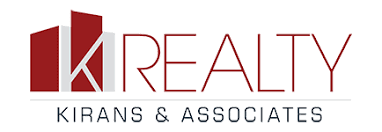Investing in single-family homes in the Phoenix Valley is a popular choice for those looking to build wealth through real estate. However, the internal dialogues that investors experience during this journey can vary greatly. Whether you’re a seasoned investor or new to the field, understanding these internal dialogues can offer valuable insights into the mindset of real estate investors.
1. Assessing Market Conditions
“Is the Phoenix Valley a good market for real estate investment? What are the trends in property values and rental demand? Am I timing the market correctly?”
Investors often start by evaluating the local market. The Phoenix Valley has a history of rapid growth, but it’s also seen downturns. Understanding the current market conditions, trends, and future projections is crucial for informed decision-making.
2. Evaluating Risk
“What are the risks associated with investing in single-family homes? How can I mitigate these risks? Do I have a contingency plan if things don’t go as expected?”
Risk assessment is a key part of any investment strategy. Investors consider factors such as property damage, tenant issues, market volatility, and regulatory changes. Developing a risk management plan helps address these concerns.
3. Determining Investment Goals
“What are my investment goals? Am I looking for rental income, capital appreciation, or both? How does this investment fit into my overall financial strategy?”
Clarifying investment goals is essential. Some investors focus on generating rental income, while others aim for long-term property appreciation. Knowing your goals will guide your investment strategy.
4. Financial Planning
“Do I have the necessary capital to invest in a single-family home? What are the financing options available to me? Can I cover maintenance costs, taxes, and other expenses?”
Investors must consider their financial position and funding options. This includes down payments, mortgage rates, ongoing costs, and potential income from rental properties. Proper financial planning ensures a stable investment.
5. Property Management Considerations
“Am I prepared to manage the property myself, or should I hire a property management company? What are the pros and cons of each approach?”
Managing a single-family home requires time and effort. Investors often debate whether to handle property management personally or outsource it to a professional company. This decision impacts workload and profitability.
6. Legal and Regulatory Compliance
“Do I understand the local landlord-tenant laws and regulations? What are my responsibilities as a property owner? How can I stay compliant with local rules?”
Understanding local laws and regulations is critical. Investors need to comply with zoning laws, rental regulations, and safety standards. Ignoring these aspects can lead to legal issues and fines.
7. Exit Strategy
“What is my exit strategy for this investment? Am I planning to hold the property long-term, or do I intend to sell it within a certain timeframe? How will market conditions affect my exit?”
Investors should have a clear exit strategy, whether it’s a long-term hold or a plan to sell after a period of appreciation. This strategy influences investment decisions and risk management.
8. Networking and Resources
“Who can I turn to for advice and support? Are there local real estate groups or professionals I can connect with? How can I build a network to support my investment journey?” Networking with other real estate professionals and investors provides valuable insights and resources. Building a supportive network can help investors navigate challenges and make informed decisions.
Understanding these internal dialogues can help both new and experienced investors navigate the complexities of single-family home investment in the Phoenix Valley. By addressing these questions thoughtfully, investors can develop a successful real estate investment strategy.





